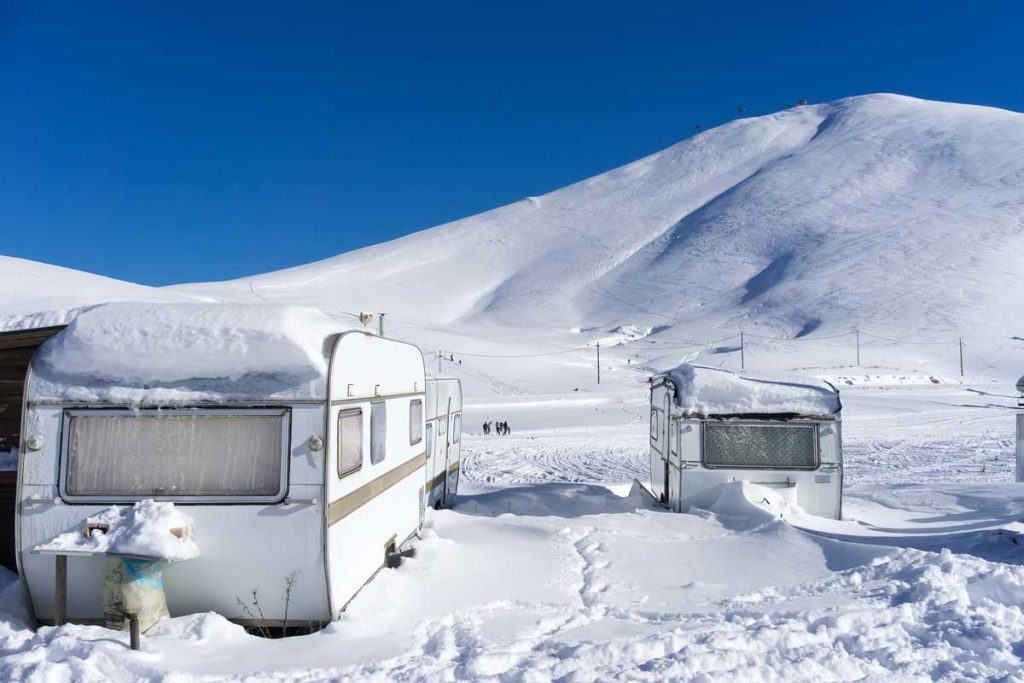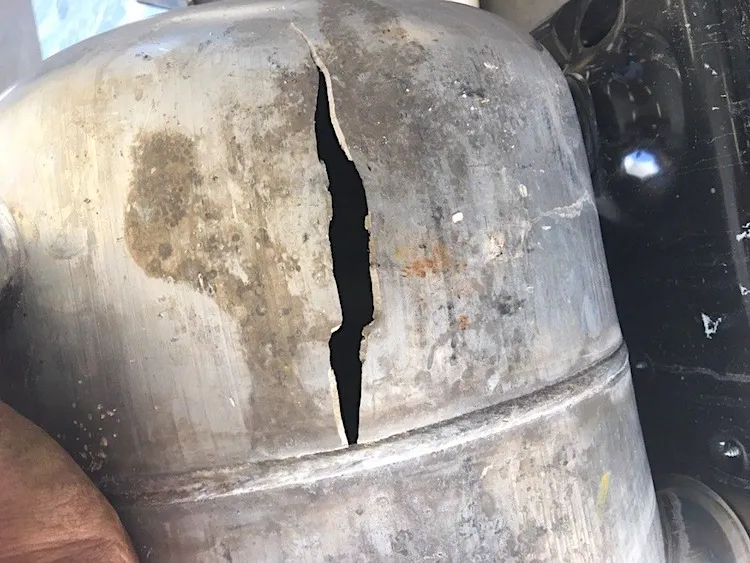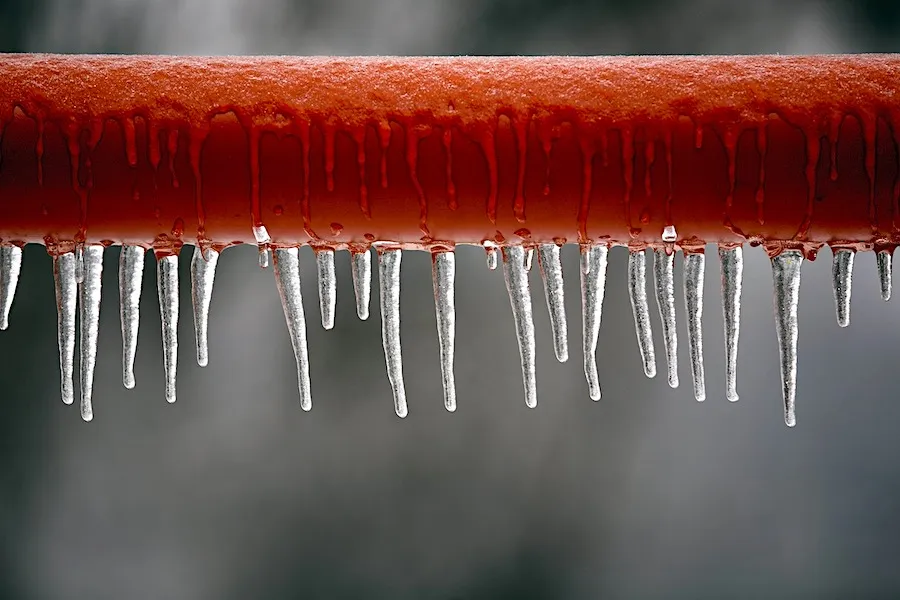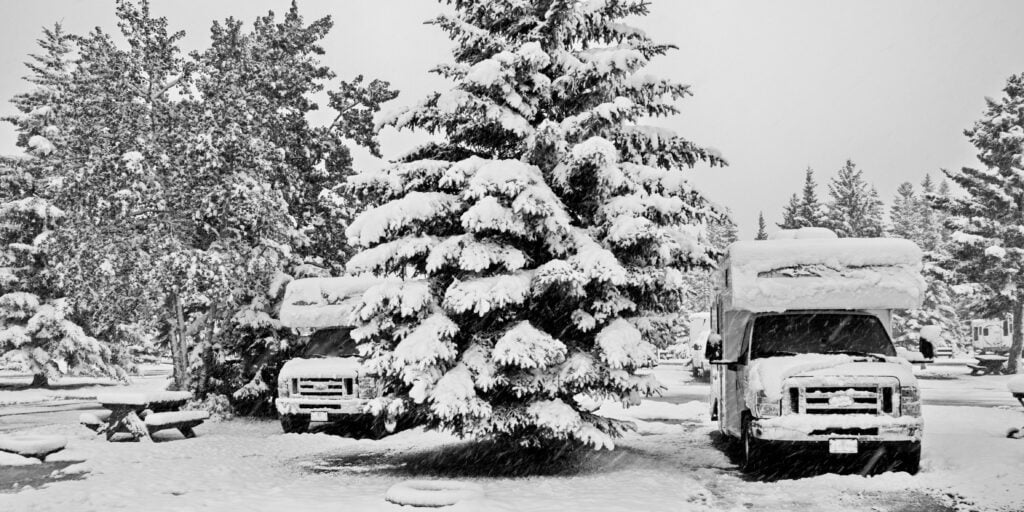Everyone is concerned about the freshness and condition of water during camping and trips. With the temperature change, it soon started freezing, especially around the winter and in the colder regions. You might struggle to understand what potential damage it can do.
No worries. We have compiled this post to help you know more about the results of freezing the fresh water in the RV tank, how to drain the RV fresh water tank, and many more things. So keep reading if you want to know more about the freezing issues and results of the freshwater in the RV water storage tank.
In this post, we have covered what happens when your fresh water tank freezes in your RV.
Fresh Water in The RV Storage Tank

When you fill the fresh water in the RV water storage tank, it is in the liquid state, which is clean and fit to use. But whenever the RV tanks are exposed to cooler temperatures below the freezing point of water, especially near the winter season or for colder reasons, some RV water tanks can’t hold the water in the liquid state, and the water in them starts freezing. The freezing doesn’t happen quickly.
The water slowly starts freezing depending on the region’s temperature and where the RV tank is. With the extensive freezing, it starts expanding and creates more pressure on the water storage tank and lines, leading to potential damage to the RV water storage tank.
The freezing risk of water arises only when the temperature is continuously below the freezing point of the water. Else, you don’t need to worry about the freezing issues.
What Can Happen if The RV’s Fresh Water Freezes

1. Unable to Use Water
The very first and basic effect of the freezing of water will be that you will not be able to get the water for drinking, cleaning, or washing purposes. Since the water will start freezing or freezing, it will clog the water lines, and you will not get the water in the sink or toilet. The RV water storage tank water supply will stop as the water can’t flow in the freezing state.
2. Potential Damage to The Water System and Pump
The next concern is the Potential damage to the tank. Freezing water can also affect the water lines. As the water freezes, it starts expanding in the solid form. So, the expansion of the water will increase the pressure on the water tank and lines.
There are so many things used in the water tank system, like the motors, seals, gaskets, and components for the water flow. All will be affected by the water freezing, making the motor run dry, leading to the bearing and damage to the water motor in the tank. So, the water tank system will be at a greater risk of damage.
3. Water Pipes and Lines at Risk
Since the water is already frozen from the water storage tank, it will also freeze the lines and pipes connected to the water tank system. As the water expands with the freezing, and it can’t flow, it will result in extra pressure on the water lines walls and pipes, which damages the water system of RV by making the water tank system weak. It affects the water tank material, leading to leaks and cracks in the RV water storage tank pipes.
4. The Increase in The Repairing Budget
When the water freezes in the RV tank storage system, it always costs and affects the budget
You might need to repair the water tank system of the RV or replace it later, depending on the damage done by the freezing water in the tank system and water lines and pipes.
It is also going to affect the water fitting and lines. This budget is often expensive and might cost you heavily.
Tips to Save Fresh Water in RV Storage Tank from Freezing

- Keep the water lines and RV storage water tank warm to the extent that they don’t freeze.
- Use the insulation tapes or the heat tapes around the water lines to keep them warm.
- Keep using the water lines regularly with the slow drips so that the water remains flowing instead of freezing in the RV water storage tank.
- When you are using the RV water storage tank, ensure that you keep the water tank full. When the tank is full, the chances of freezing are reduced because the water doesn’t get enough space to expand.
- When you are not using the RV, winterize it to avoid getting the water frozen. Use the basic winterizing strategies for it using the nontoxic antifreeze. Simply pour it on the water line pipes, fixtures, and sinks so that the water will not freeze in the water lines and pipes while draining.
Final Thoughts
Everyone wants to utilize fresh water for so long without unwanted issues like freezing or spoiling water during camping or trips. Understanding the certain factors that affect the temperature and change the state of fresh water to freezing or spoiling is crucial and the way to save your freshwater during camping for the long term.
This post showed you What happens when your fresh water tank freezes in your RV to help you understand how long you can keep your water in the liquid state and prevent major potential damages if you want more ways to add value to your lifestyle and camping experience, sign up and get our best tips, tricks, and strategies sent to your inbox.

